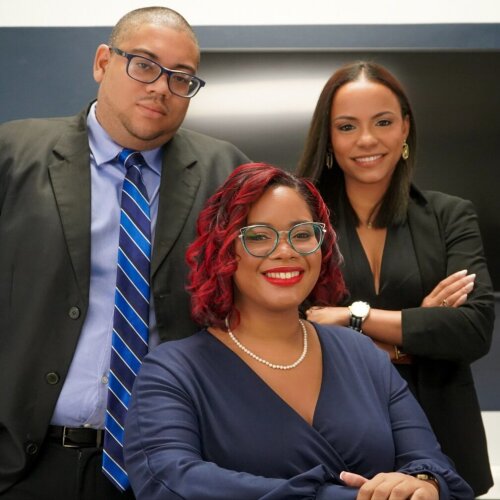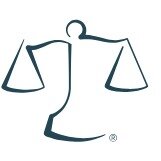Best Elder Abuse Law Lawyers in Jamaica
Share your needs with us, get contacted by law firms.
Free. Takes 2 min.
Or refine your search by selecting a city:
List of the best lawyers in Jamaica
About Elder Abuse Law in Jamaica
Elder abuse law in Jamaica is designed to protect older individuals from various forms of abuse, including physical, emotional, financial, and neglect. The Jamaican government recognizes the need to safeguard the well-being of the elderly, and various legal instruments and mechanisms are in place to ensure their protection. While there may not be a unified legislative framework specifically titled "Elder Abuse Law," existing laws encompassing family, criminal, and civil statutes provide avenues for addressing and prosecuting elder abuse cases.
Why You May Need a Lawyer
Legal representation can be crucial in navigating the complexities of elder abuse cases in Jamaica. Some common situations where you might need a lawyer include:
- Suspecting your elderly family member is being abused or neglected in a care facility or at home.
- Wanting to take legal action against an individual or organization perpetrating elder abuse.
- Needing guidance on the protective mechanisms available for elder people under Jamaican law.
- Requiring assistance in obtaining restraining or protective orders to prevent further abuse.
- Seeking compensation or restitution for financial exploitation or losses suffered by an elderly person.
Local Laws Overview
Several key aspects of local laws in Jamaica are pertinent to elder abuse:
- The Domestic Violence Act: This law allows for protection orders to safeguard individuals, including the elderly, from domestic violence, which encompasses various forms of abuse.
- The Maintenance Act: This legislation obligates family members to provide support for their elderly relatives who cannot maintain themselves.
- Common Law and Tort Law: These areas of law provide for civil remedies in cases of personal injury or negligence, applicable to elder abuse scenarios.
- Criminal Law: Physical abuse or neglect can lead to criminal charges under statutes addressing assault, battery, and neglect.
Frequently Asked Questions
What constitutes elder abuse in Jamaica?
Elder abuse in Jamaica can take various forms, including physical harm, emotional abuse, financial exploitation, neglect, and abandonment. It involves any action or inaction that causes harm or distress to an older person.
Who can report elder abuse?
Anyone who suspects that an elderly person is being abused can report it, including family members, friends, healthcare professionals, and concerned citizens.
How can elder abuse be reported in Jamaica?
Elder abuse can be reported to local police, social services, or relevant government agencies. Additionally, individuals can consult with a lawyer for guidance on taking further legal action.
What legal protections exist for elders in Jamaica?
Laws such as the Domestic Violence Act and the Maintenance Act provide specific protections for elders in Jamaica. Criminal and civil laws also offer avenues for addressing abuse and seeking justice.
Can an elder refuse intervention if abuse is suspected?
If the elder has the mental capacity to make informed decisions, they can refuse intervention. However, legal steps might still be possible if they are at serious risk of harm.
What are the signs of elder abuse?
Signs include unexplained injuries, sudden financial changes, poor hygiene, fearful behavior, social withdrawal, and malnutrition, among others.
Are there any penalties for elder abuse in Jamaica?
Penalties can vary based on the nature and severity of the abuse, potentially leading to criminal charges with imprisonment or fines, as well as civil liabilities.
How can financial abuse of elders be addressed?
Victims or their representatives can seek legal advice to halt any ongoing exploitation and potentially recover lost assets. This might involve civil actions or criminal proceedings.
What role do social services play in elder abuse cases?
Social services may investigate reports of elder abuse, provide support services, and collaborate with legal authorities to ensure the safety and well-being of the elderly.
Can elder abuse occur in care facilities?
Yes, elder abuse can occur in various settings, including care facilities, where neglect or mistreatment by staff can be reported and legally challenged.
Additional Resources
For those seeking more information or assistance with elder abuse in Jamaica, the following resources may be helpful:
- The Ministry of Labour and Social Security, which oversees welfare programs for the elderly.
- The Jamaica Council for Persons with Disabilities for support related to disability and elder care.
- Local branches of the Legal Aid Council for legal assistance.
- Jamaica's National Council for Senior Citizens, which advocates for elder rights and welfare.
Next Steps
If you suspect elder abuse or need legal assistance in elder abuse law, consider taking the following steps:
- Document any evidence or signs of abuse, including photographs and written records.
- Reach out to a qualified lawyer specializing in elder law to discuss your concerns and legal options.
- Report any known abuse to local authorities or social services immediately.
- Consider involving family members or trusted individuals to help support the elder person involved.
- Explore protective measures such as restraining orders or guardianship arrangements if necessary.
Taking prompt action can help ensure the safety and well-being of elderly individuals and help stop abusive situations from continuing.
Lawzana helps you find the best lawyers and law firms in Jamaica through a curated and pre-screened list of qualified legal professionals. Our platform offers rankings and detailed profiles of attorneys and law firms, allowing you to compare based on practice areas, including Elder Abuse Law, experience, and client feedback.
Each profile includes a description of the firm's areas of practice, client reviews, team members and partners, year of establishment, spoken languages, office locations, contact information, social media presence, and any published articles or resources. Most firms on our platform speak English and are experienced in both local and international legal matters.
Get a quote from top-rated law firms in Jamaica — quickly, securely, and without unnecessary hassle.
Disclaimer:
The information provided on this page is for general informational purposes only and does not constitute legal advice. While we strive to ensure the accuracy and relevance of the content, legal information may change over time, and interpretations of the law can vary. You should always consult with a qualified legal professional for advice specific to your situation.
We disclaim all liability for actions taken or not taken based on the content of this page. If you believe any information is incorrect or outdated, please contact us, and we will review and update it where appropriate.
Browse elder abuse law law firms by city in Jamaica
Refine your search by selecting a city.















